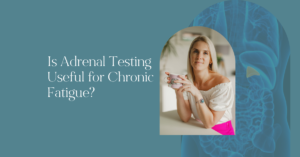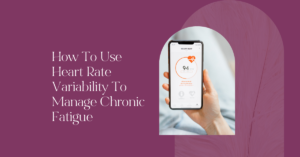Long Covid, also known as post-acute sequelae of SARS-CoV-2 infection (PASC), refers to a condition where individuals continue to experience a range of symptoms and health issues weeks or even months after initially contracting COVID-19. These lingering effects can persist long after the acute phase of the illness has passed.
Common symptoms of Long Covid may include:
- Fatigue
- Shortness of breath
- Chest pain
- Joint pain
- Cognitive difficulties often referred to as “brain fog.”
Some individuals may also experience ongoing organ damage or inflammation. Long Covid can affect people of all ages, regardless of the severity of their initial COVID-19 infection, and its exact mechanisms and duration can vary widely from person to person.
You can learn a little more about the impact of viral infections on Chronic Fatigue in my previous blog, here.
What is Creatine?
Creatine is a naturally occurring compound found in small amounts in certain foods and synthesised by the body, primarily in the muscles. It is part of the Adenosine Triphosphate -Phosphocreatine (ATP-PC) energy system. This is our short term and most accessible energy system that dominates in short intense bouts of activity (from 1-30 seconds) providing rapid energy for high-intensity, short-duration activities like weightlifting or sprinting.
Supplementing with creatine has been shown to increase the body’s stores of phosphocreatine, which aids in the production of ATP, the primary energy currency of cells. This can lead to improved strength, power, and endurance during exercise. Additionally, creatine has been studied for its potential in enhancing muscle recovery and reducing inflammation post-exercise.
The ATP-PC system bridges the gap between our sugar burning intermediate energy system (glycolysis) which means that we constantly need to recycle energy via the ATP-PC system to support energy availability during exercise and to extrapolate to chronic illness, the physical demands of activities of daily living.
For individuals recovering from Long Covid, creatine may offer support by helping to rebuild weakened muscles, improve overall physical function, and potentially alleviate some of the fatigue and weakness associated with the condition.
Anecdotally, I am hearing positive reviews on the benefits of creatine in fatigue recovery generally and long covid specifically. This blog post aims to explore the research (limited) in this area.
Creatine: Beyond Bioenergetics:
Creatine is one of the most researched ergogenic aids in the sporting world. But supplemental creatine may be beneficial beyond cellular bioenergetics and ATP production. It may also offer neuroprotection, modulation of the immune system and antioxidant activity – all of which may be relevant to mechanisms involved in chronic illness and chronic fatigue generally and long covid specifically.
Understanding the Possible Mechanisms
Neuroprotection
The exact mechanisms by which creatine can be neuroprotective are still being researched. However, it is suggested that creatine’s potential neuroprotective effects stem from its ability to enhance cellular energy metabolism, particularly in cells with high energy demands like neurons in the brain.
Immune Modulation
Creatine’s role in modulating the immune system is an area of ongoing research, and the exact mechanisms are not yet fully understood. However, some studies suggest that creatine may have immunomodulatory effects, which means it can influence the functioning of the immune system.
Here are some potential ways in which creatine may interact with the immune system:
- Creatine has been shown in some studies to have anti-inflammatory effects. It may help reduce the production of pro-inflammatory molecules, which play a role in various immune responses.
- Some research has indicated that creatine supplementation may enhance T-cell function, potentially improving immune defence mechanisms.
- Creatine may act as an antioxidant, helping to reduce oxidative stress. This can be beneficial for immune cells, as excessive oxidative stress can impair their function.
- Immune cells require energy to carry out their functions. Creatine’s role in ATP regeneration may indirectly support immune cell activity by providing a readily available source of energy.
- Some studies suggest that creatine may influence the production and release of certain cytokines, potentially affecting immune function.
- Some preliminary research suggests that creatine supplementation may have a positive impact on autoimmune conditions, although more research is needed in this area.
Antioxidant Activity
Creatine exhibits antioxidant properties through various mechanisms:
- Creatine can directly neutralise harmful reactive oxygen species (ROS) and free radicals. This is important because excessive ROS can lead to oxidative stress, which can damage cells and tissues.
- Creatine has been shown to help regenerate another important antioxidant, glutathione. Glutathione is a potent cellular antioxidant that plays a crucial role in protecting cells from oxidative damage.
- Creatine can chelate (bind to) transition metal ions like iron and copper, which are involved in generating harmful free radicals. By sequestering these ions, creatine can help prevent them from contributing to oxidative stress.
- Creatine may help maintain proper function of mitochondria, the cellular structures responsible for energy production. When mitochondria are functioning optimally, they produce fewer free radicals, reducing oxidative stress.
- By supporting the rapid regeneration of adenosine triphosphate (ATP), creatine helps ensure that cells have a sufficient energy supply. This can indirectly reduce oxidative stress by preventing energy depletion-related damage.
- Creatine may help protect cell membranes from lipid peroxidation, a process where free radicals attack and damage the lipids in cell membranes. This is a common consequence of oxidative stress.
The Science Behind Creatine and Long Covid Specifically
To date, there is little research on creatine and long covid specifically. However, one study showed that when patients with post-COVID-19 fatigue syndrome supplemented with 4g of creatine monohydrate per day the participants showed an increase in brain and muscle creatine levels across a 3 and 6 month period. The increase was significant when compared to the placebo group.
The increase in tissue levels was also associated with a reduction in fatigue and improved syndrome related symptoms such as body aches, headaches, breathing difficulties and difficulty concentrating. The sample size of this study was only small, but, given that creatine is often a safe and affordable intervention, the results are promising.
A recent study found that the total creatine concentration in the skeletal muscle and the brain of long covid patients were significantly lower when compared to reference values from the general population.
Despite the limited research on creatine and long covid specifically, there seems promise that creatine may be beneficial to support those experiencing Long Covid in the following areas:
Creatine and Muscle Strength in Long Covid
Creatine may be beneficial for muscle weakness in Long Covid for several reasons. Creatine helps to regenerate adenosine triphosphate (ATP), providing an energy source for muscle contractions and this may support muscle weakness.
By increasing the availability of phosphocreatine, creatine may help sustain high-intensity muscle contractions for longer periods. This can lead to improved muscle strength and function, which is crucial for individuals experiencing muscle weakness.
Creatine has been shown to reduce muscle cell damage and inflammation after intense exercise. It may also reduce oxidative stress. As many people with Long Covid may experience Post Exertional Malaise (PEM), it may support faster recovery, especially where muscle fatigue and soreness are symptoms.
Using creatine as a supplement may preserve muscle mass, especially in situations where muscle wasting may be a concern. This could be relevant for individuals with Long Covid who have experienced a decline in muscle mass due to inactivity or other factors.
Lastly, supplementation with creatine may indirectly support muscle weakness through its neuroprotective benefits.
Cognitive Function
Creatine may offer potential benefits for cognitive function in Long Covid for several reasons. The potential for ATP regeneration with creatine supplementation is not only applicable to the muscles, but also for the neurons in the brain.
Creatine supplementation increases levels of phosphocreatine in the brain. Phosphocreatine acts as a rapid energy reserve that can be converted to ATP, providing a quick source of energy for neurons during high-demand cognitive tasks. Better brain energy means better cognitive processes, including memory, attention, and problem-solving.
Research suggests that creatine has potential to be neuroprotective. It may help protect neurons from oxidative stress and energy depletion, both of which can contribute to cognitive difficulties. It may help to stabilise the membranes of nerve cells, which is crucial for proper signalling and communication between neurons, which are essential for cognitive function.
The anti-inflammatory properties of creatine may help to reduce brain inflammation that contributes to cognitive difficulties. In doing so, reducing inflammation may have positive effects on cognitive function.
All of the above could be particularly relevant for individuals with Long Covid who may be experiencing cognitive challenges, such as brain fog.
Creatine Supplementation and The Menstrual Cycle
Recent research has looked specifically at the ATP-PC energy system in women and how it may vary across the menstrual cycle. Creatine Kinase and creatine metabolism may increase and decrease with the rise and fall of oestrogen.
In a normal cycle, oestrogen peaks at ovulation and is higher in the luteal phase (second half) of the cycle. Theory currently suggests that creatine supplementation may be even more effective at these times of higher oestrogen.
Therefore, if you are a cycling woman, you may notice changes in your response to supplementation across your menstrual cycle.
Dosage and Safety Considerations
The dosage recommendations for creatine can vary depending on factors like individual tolerance, body weight, and specific goals. However, a common approach for creatine supplementation involves two main phases:
Loading Phase (Optional):
This phase involves taking a higher dose of creatine for a short period (typically 5-7 days) to rapidly saturate muscle creatine stores.
Common loading dosage: 20 grams per day, divided into 4 doses of 5 grams each.
Maintenance Phase
After the loading phase, a lower dose is taken on an ongoing basis to maintain elevated creatine levels in the muscles.
Common maintenance dosage: 3-5 grams per day. The 6 month trial conducted specifically on Long Covid Patients used the dosage of 4 grams per day.
Brain Saturation Dosage
For 8 days take 20g per day, in divided doses e.g. 4 doses of 5 grams each. For 8 days take 10g per day in divided doses e.g. 2 doses of 5 grams each. Then, maintain a 5 gram dosage daily.
Some individuals choose to skip the loading phase and take a consistent maintenance dose from the start. This approach may take longer to reach maximum muscle creatine levels, but it can still be effective over time.
It’s worth noting that creatine monohydrate is the most studied and widely used form of creatine. Other forms of creatine exist, but they may have different dosing recommendations.
Are There Food Sources Of Creatine?
Creatine is naturally found in small amounts in various food sources, particularly animal products. Here are some examples of food sources of creatine:
Red Meat
Beef, particularly cuts like steak and ground beef, is one of the richest sources of creatine. Pork also contains smaller amounts.
Fish
Fish, especially certain types like salmon and tuna, are good sources of creatine. Herring and trout also contain moderate amounts.
Poultry
Chicken and turkey have lower levels of creatine compared to red meat and fish, but they still provide some.
Wild Game
Wild game meats like venison and elk are good sources of creatine.
Other Animal Products
Some dairy products, like milk and yoghurt, also contain small amounts of creatine.
It’s important to note that cooking can affect the creatine content in foods. For example, boiling meat can lead to a loss of creatine due to leaching into the cooking water. Grilling, roasting, and baking are cooking methods that help retain more creatine in the meat.
Vegans and vegetarians are more vulnerable to lower levels of creatine and these populations may notice a positive impact from taking a creatine supplement.
Safety Concerns
Creatine supplementation is generally considered safe for most individuals when taken within the recommended dosages. However, there are some considerations and potential safety concerns to be aware of:
- Kidney Function: While creatine supplementation is generally safe for healthy individuals, those with pre-existing kidney conditions should exercise caution. Consulting a healthcare provider before starting creatine is especially important for individuals with kidney issues.
- Dehydration: Creatine may increase water retention within muscle cells, potentially leading to mild dehydration if not enough water is consumed. It’s important to stay adequately hydrated when using creatine.
- Digestive Issues: Some individuals may experience mild gastrointestinal discomfort or digestive issues when taking creatine. This can usually be mitigated by taking creatine with food or choosing a different form of creatine (e.g., creatine hydrochloride).
- Interactions with Medications: Creatine may interact with certain medications or supplements. It’s important to consult with a healthcare provider if you are taking any medications, especially diuretics or nonsteroidal anti-inflammatory drugs (NSAIDs).
- Purity and Quality of Supplement: Ensuring you use a reputable, high-quality creatine supplement is crucial to avoid potential contaminants or impurities that could be harmful.
- Allergic Reactions: While rare, some individuals may have allergies to specific additives or fillers present in certain creatine supplements. It’s important to carefully read labels and choose supplements from trusted sources.
- Long-Term Safety: The long-term effects of creatine supplementation beyond several months to a few years are still being studied. However, research so far suggests it is well-tolerated when used within recommended dosages.
- Age and Health Status: Special care should be taken when considering creatine supplementation for children, adolescents, pregnant or breastfeeding individuals, and those with existing health conditions. Consulting a healthcare provider is essential.
Always consult with a healthcare provider before starting any new supplement regimen, especially if you have underlying health conditions or are taking medications. They can provide personalised advice based on your specific circumstances.
Conclusion
Creatine is an affordable and relatively safe supplement that could be used as part of a comprehensive Long Covid support pan. Although there is limited research regarding Long Covid and Creatine specifically, there is promising evidence that creatine may help to improve fatigue, muscle weakness and cognitive symptoms. Women may notice a varied response to supplementation depending on their menstrual cycle.
Referenced Articles
Reduced tissue creatine levels in patients with long COVID-19: A cross-sectional study
Creatine Supplementation in Women’s Health: A Lifespan Perspective
Creatine Supplementation and Brain Health
Diagnostic and Pharmacological Potency of Creatine in Post-Viral Fatigue Syndrome










